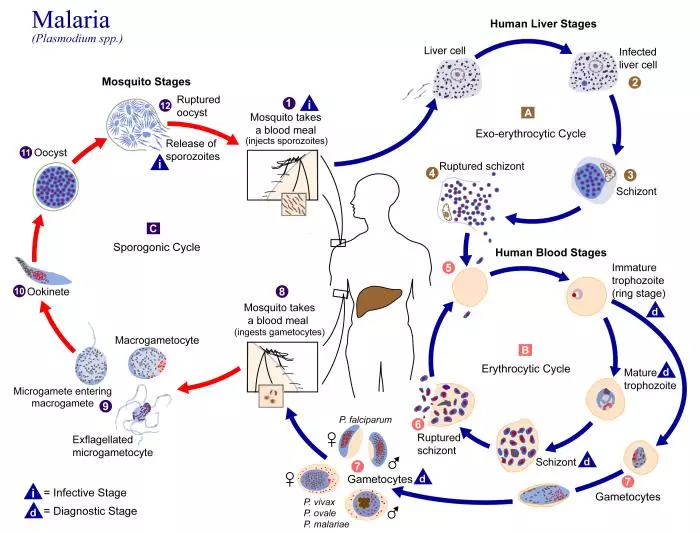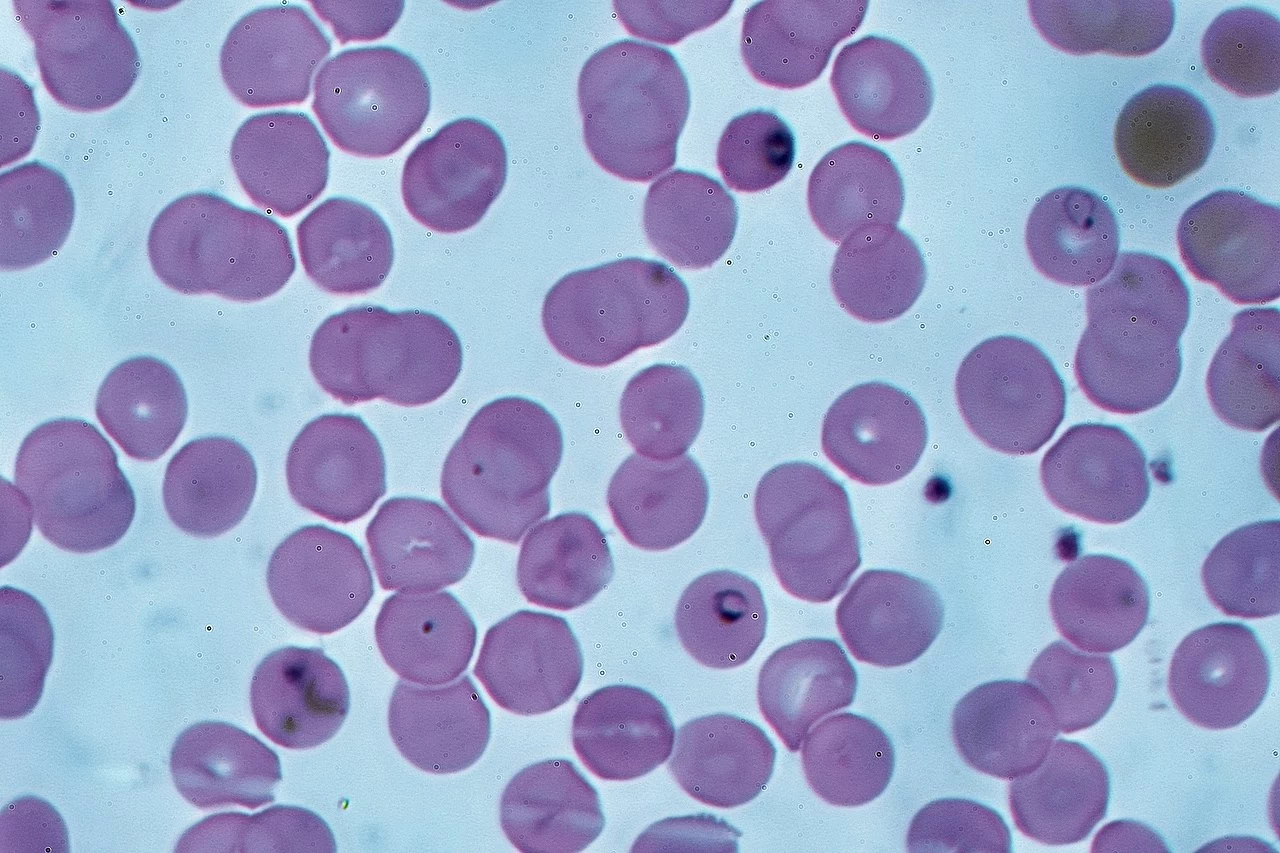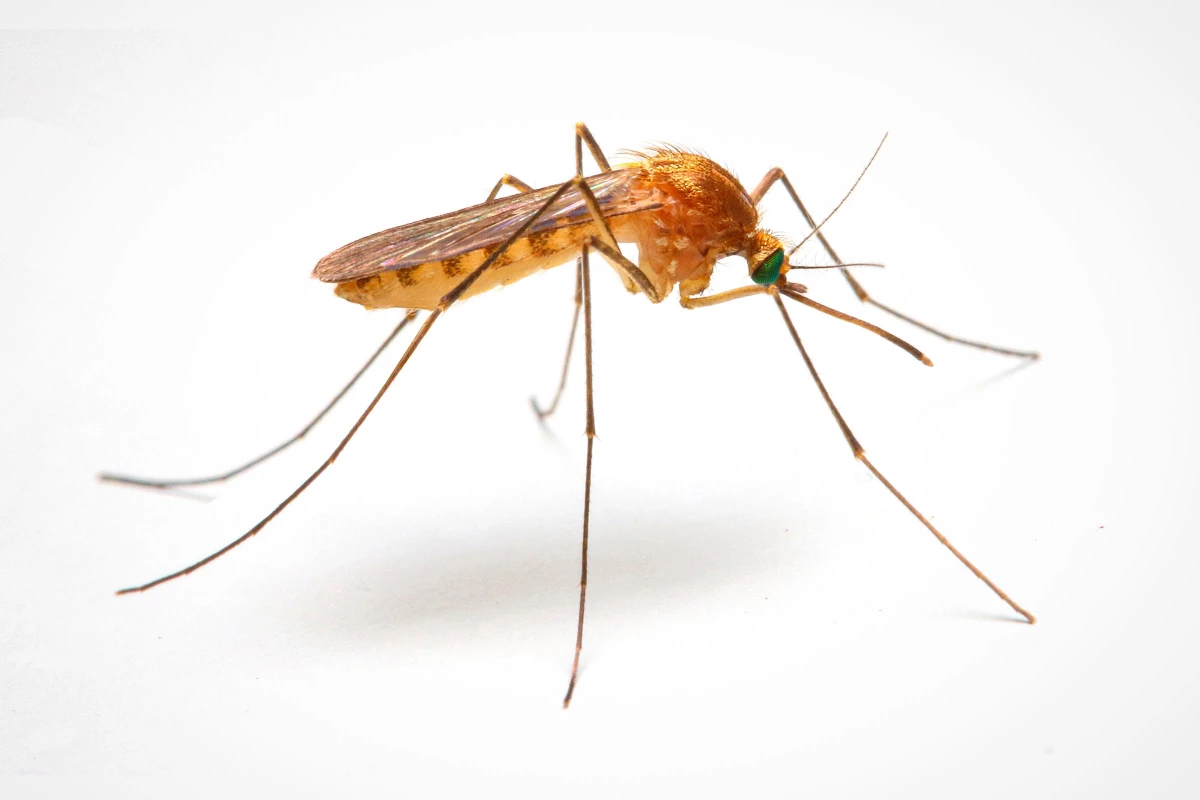Mosquitoes do a superb job of spreading diseases like malaria – now researchers have shown it's possible to hijack these pests and distribute vaccines via mosquito bite. In human trials, these mozzie-borne vaccines proved around 90% effective.
It's a remarkable little flip in thinking; instead of looking at mosquitoes as the bane of our existence, blood-sucking parasites that do nothing but make us itchy and sick, the research team saw an airborne swarm of organic vaccine delivery systems that would apply all the wisdom of millions of years of evolution to inject entire populations with vaccines and regular booster shots.
They didn't even have to modify the mosquitoes themselves, as it turned out.
Malaria's real culprit: A single-celled parasite
The research team, from the London School of Hygiene and Tropical Medicine, instead looked at the Plasmodium falciparum parasite – which is regarded as the deadliest parasite to humans. These nasty little single-cell protozoans ride along with female Anopheles mosquitoes waiting for them to feed, hiding in the salivary glands along with the mosquitoes' natural anti-inflammatory and anti-clotting enzymes.

When you get bitten, up to 200 P. falciparum passengers enter your bloodstream, where they glide around looking for liver cells in which to hide, multiply and transform. Within a week, each of these single units will disgorge nearly 100,000 new parasites into your bloodstream, where they start invading and killing red blood cells as they multiply in cyclical waves that start showing up as malaria symptoms: fever, chills, exhaustion, blood clotting, and a range of other serious complications.
Malaria is still a massive problem. The CDC estimates there were around 249 million human cases in 2022, leading to around 608,000 deaths. "In many of the countries affected by malaria," reads a CDC explainer, "it is the leading cause of death."
Swords to plowshares: Modified parasites become vaccines against their own kind
So the London team looked at how the P. falciparum parasite might be genetically modified to act as a vaccine instead of as a disease vector – and they settled on an approach that lets the parasite behave as normal, right up to the point where it settles in human liver cells and starts to multiply.
About six days into the infection, the team's modified GA2 parasites simply stop developing. They don't release those secondary parasites into the blood stream. But they do release a whole bunch of antigens, which prime the human immune system with a strong inflammatory response – a response that's quickly triggered next time an unmodified, malaria-carrying parasite shows up in a liver cell.

Human testing: no thanks
Somehow, the team managed to find 43 volunteers willing to test these novel organic vaccines. In first-stage testing, 20 subjects were exposed to either 15 or 50 bites from mosquitoes carrying the modified GA2 parasite. None of the subjects showed evidence of a blood-stage infection, confirming the safety of the approach.
Then, in the second stage, 23 subjects had to go in three times, 28 days apart, to receive 50 bites from either normal mosquitoes, or ones with modified parasites. Half of these were GA2, half were a different GA1 version, which were programmed to stop developing at just one day in the liver instead of six.
Three weeks later, they came in again to get five bites from mosquitoes carrying unmodified, malaria-carrying parasites. We hope they were well-paid.
All three of the subjects that had been previously exposed to normal mosquito bites caught malaria, with 13% of those inoculated with GA1-modified parasites escaping infection – and a remarkable 89% of those that got the GA2 parasites managing to avoid infection.
"Other than the itching associated with mosquito bites," reads a press release, "side effects were limited." The team now hopes to run a much larger trial to replicate and confirm their results, and we salute those with the stomach to sign up for such a thing.
Where to from here?
So assuming the larger human trials go well, we now know mosquito bites can be used to spread vaccines.
And perhaps, if huge numbers of GA2-carrying insects were released into the wild in malaria-stricken areas, their natural appetites would ensure that whole populations receive regular vaccine boosters right through the warm, wet parts of the year when the risk of infection is highest – without the need for refrigerated supply chains, hygienic needles and trained medics.
But the researchers make no mention of any such plan. Indeed, it's unclear where this research might lead. Getting the GA2 parasites into the insects is currently pretty labor-intensive – the parasites are cultured in a lab on human blood cells, then this blood is fed to mosquitoes, where it takes up to two weeks before the mosquitoes are ready to spread it through bites.
So it wouldn't be particularly quick or cheap to raise enough insects to vaccinate a whole town, and you'd need to continually breed more to compete with the wild mosquitoes – even if somebody managed to get such an idea past a committee. What's more, thanks to the specific life cycle of these parasites, it also seems unlikely that the method would work to deliver other types of vaccines.
Still, it's a fascinating idea, and there have certainly been other programs targeting malaria that have involved breeding and releasing genetically modified mosquitoes, so we're interested to learn where things go from here.
The study is open access in The New England Journal of Medicine.
Source: Nature





